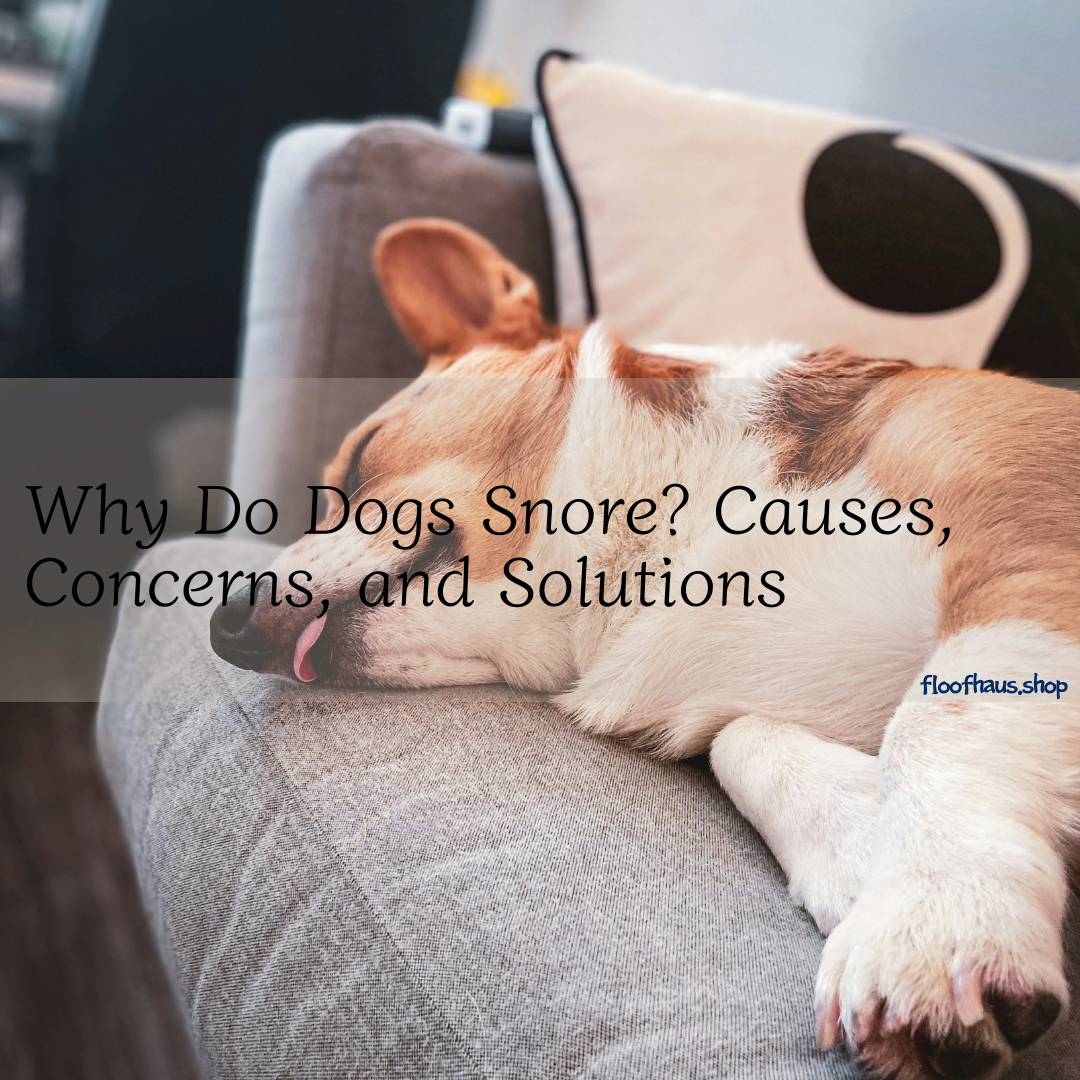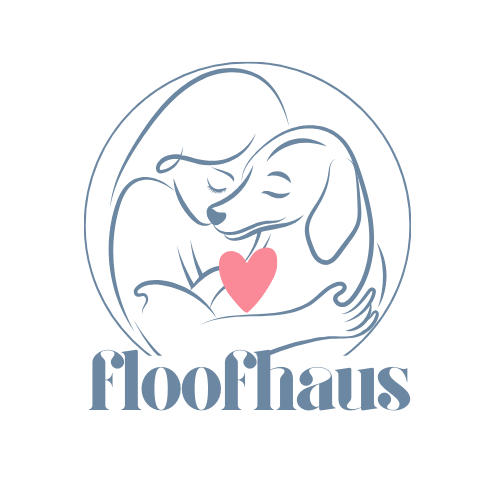
Why Do Dogs Snore? Causes, Concerns, and Solutions
Share

Why Dogs Snore
Snoring happens when airflow through the nose, throat, or mouth is partially blocked during sleep. For humans, it’s often associated with sleep positions or sinus congestion, and for dogs, the same applies. But there are also breed-specific traits and health factors that make dogs snore more often than others.
The sound is produced by vibrations in the soft palate, nasal passages, or throat. Depending on the cause, it can range from a gentle hum to a loud rumble that fills the room.
Common Reasons Dogs Snore
1. Breed Characteristics
Some breeds are simply more prone to snoring because of their anatomy. Brachycephalic (flat-faced) breeds like Bulldogs, Pugs, and Shih Tzus have shorter airways, making them more likely to snore loudly. Their squished noses and elongated soft palates create natural obstructions to airflow.
2. Sleeping Position
Just like humans, dogs that sleep on their backs often snore more. This position allows the tongue to fall back slightly, restricting airflow and causing vibrations. Side sleeping generally reduces snoring, while back sleeping makes it louder.
3. Age and Weight
Older dogs may snore more due to muscle relaxation around the throat. Overweight dogs are also at risk because excess tissue around the neck and chest can narrow airways. Maintaining a healthy weight helps reduce snoring and improves overall wellbeing.
4. Allergies and Irritants
Dust, pollen, cigarette smoke, or strong cleaning products can irritate a dog’s airways, leading to snoring. Seasonal allergies or environmental triggers may cause congestion that makes nighttime breathing noisier.
5. Temporary Congestion
Colds, sinus infections, or minor respiratory issues can make dogs snore until the condition clears. Usually, this is temporary and accompanied by sneezing or nasal discharge.
When Snoring Could Signal a Health Issue
While many cases are harmless, there are times when snoring should be taken seriously.
- Obstructive sleep apnea: Rare in dogs but possible, especially in flat-faced breeds.
- Respiratory infections: Persistent snoring with coughing, wheezing, or lethargy could mean something more serious.
- Nasal obstruction: Foreign objects, nasal polyps, or even tumors can block airflow.
- Obesity-related breathing issues: Carrying too much weight puts strain on the respiratory system.
- Dental or oral problems: Infections or growths in the mouth may also cause snoring.
If your dog’s snoring is new, suddenly louder, or accompanied by other concerning symptoms (gagging, breathing pauses, fatigue), a vet visit is necessary.
How to Help Your Dog Snore Less
You might not eliminate snoring completely, but you can take steps to minimize it and support healthy breathing.
1. Adjust Sleeping Position
Encourage your dog to sleep on their side instead of their back. You can use orthopedic or bolster-style beds that naturally support side sleeping.
2. Maintain a Healthy Weight
Proper nutrition and exercise reduce fat around the neck and chest, making breathing easier. Ask your vet about a healthy weight target for your pup.
3. Keep Air Clean
Air purifiers, regular vacuuming, and avoiding smoke or harsh chemicals can reduce allergens that irritate your dog’s airway.
4. Hydration Matters
A dry throat worsens snoring. Always provide fresh, clean water and consider a pet fountain to encourage hydration.
5. Use a Humidifier
Dry air can irritate your dog’s nasal passages. A humidifier in your dog’s sleeping area helps keep airways moist and reduces snoring.
6. Veterinary Care
For persistent or severe snoring, your vet may recommend diagnostic tests. Treatments can include medication for allergies, surgery for structural issues, or weight management plans.
At Floofhaus, Better Sleep for Every Pup
At Floofhaus, we believe restful sleep is just as important for dogs as it is for humans. That’s why we offer:
- Orthopedic dog beds that support healthy sleep positions and reduce snoring.
- Pet-safe air purifiers and humidifiers to keep air clean and breathable.
- Healthy food and treats designed to support ideal weight and respiratory health.
- Enrichment toys and exercise gear to keep your pup active, happy, and fit.
Whether your pup snores like a bulldozer or sleeps silently, Floofhaus provides everything you need to ensure comfort and wellbeing.
Conclusion
So, why do dogs snore? In many cases, it’s simply due to breed traits, sleeping positions, or minor irritations. But sometimes, snoring signals underlying health problems that require attention.
By understanding the causes and knowing when to seek veterinary help, you can support your dog’s health and keep those snores from becoming a concern. With a safe, cozy environment and the right care, your pup can breathe — and dream — more peacefully.
Sources
American Kennel Club – Why Dogs Snore
VCA Hospitals – Snoring in Dogs
PetMD – Snoring Causes in Dogs
